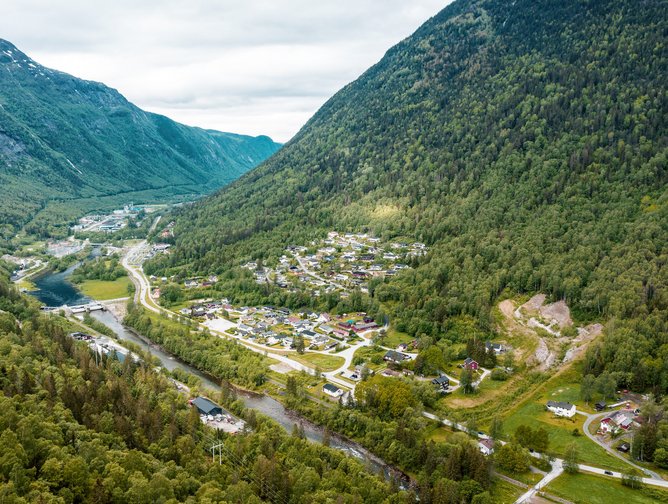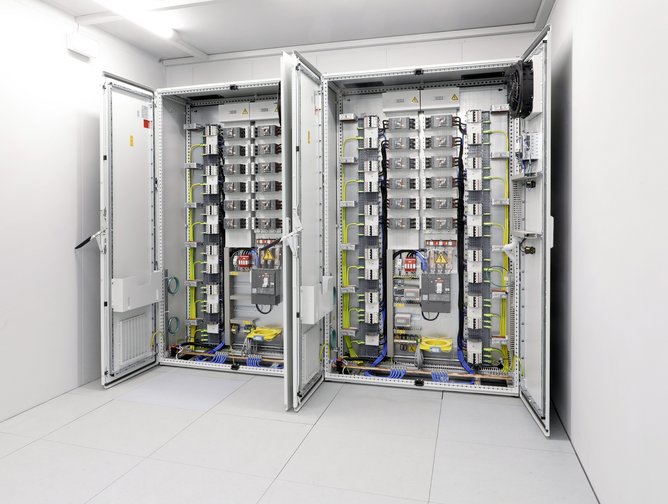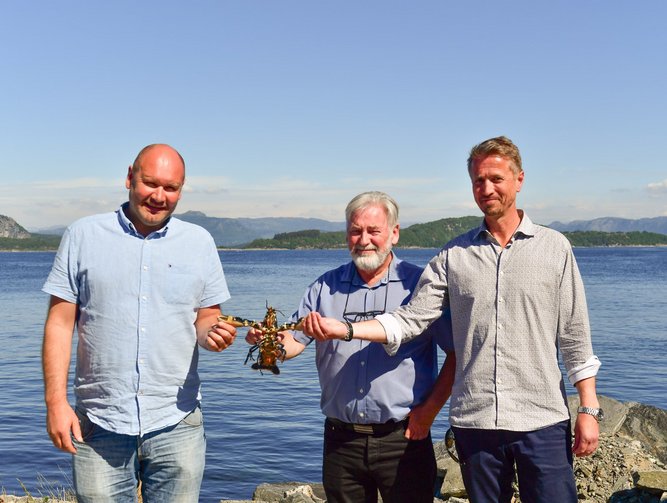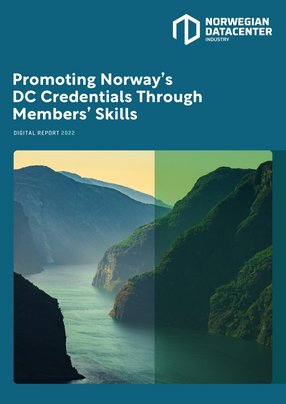Promoting Norway’s DC Credentials Through Members’ Skills
The Norwegian Data Center Industry is an association formed of seven data centre operators and power providers. Known as the ‘founding fathers’, these include Green Mountain, Stack Infrastructure, Lefdal Mine Datacenter, Bulk, Basefarm, Ringerikskraft and Statkraft. The association also noticed that there was significant interest from other areas of the ecosystem and today it consists of around 35 members ‒ from power providers to hardware suppliers.
Its aim is to promote the country’s data centre sector through its members and working groups.
“What really made us pull this together was the joining of forces on addressing the tax barriers that kept us from being competitive with our neighbouring countries,” Bjørn Rønning, General Manager of The Norwegian Data Center Industry said.
The need for an association like the Norwegian Data Centre Industry increased during the height of the pandemic, which accelerated the company’s growth further and allowed it to identify the main issues the Norwegian sector is experiencing and how best to tackle them.
According to an analysis conducted by Implement Economics ‒ part of the Implement Consulting Group ‒ data centre capacity in Norway has increased by 17% per year since 2010. In 2020, approximately 145 MW of capacity was installed, and this capacity is expected to grow sharply in the years to come. In the period 2019-2020, at least NOK 2.7bn (US$3.06bn) was invested in new data centres in Norway. The investments are driven by both Norwegian and international demand.
“I think one of the key themes here is the energy situation and the total cost of ownership ‒ the TCO ‒ of energy,” says Rønning. “It’s all about turning around the perception of Norway that it is, in inverted commas, ‘not open for business’. Norway is absolutely open for business. We have a very mature digital population; we have a government that’s really backing the data centre strategy, and we have a vibrant data centre ecosystem that is led by five large data centre operators.”
Working groups address key areas of the data centre sector
In addition to reducing tax and improving framework conditions, the Data Center Industry association looks to advertise and promote the industry. It achieves this through its working groups. Based on requirements from the association’s members, there are four working groups categorised into Sustainability, International Marketing, Power & Grid and Skills Development.
Each of the groups is working on different projects. The Sustainability working group, for example, is focused on heat reuse projects. As the Norwegian operators already tick the box for renewable energy and world-leading power-efficiency, heat reuse is the next step on the road to carbon neutrality. “We are also looking at how we can get consistent and transparent reporting on climate factors, so we can compare apples with apples in terms of other markets or other countries,” Rønning explains.
Rønning says that the global data centre industry is in short supply of personnel such as electricians and people who work with cooling and heating technology. Although the situation in Norway is not as critical, the Skills Development group aims to spur development of skilled resources to the DC industry. “We are actively working with schools to develop apprenticeship programmes to encourage more young people into the business,” he says.
Then there’s what Rønning refers to as the working group for power-related issues. He wholeheartedly believes that Norway is equal to other countries when it comes to building grids, launching projects, and having on-site power availability. This is, however, cumbersome work, Rønning points out. “You’re working with large, monopolistic organisations like grid providers and so forth, and we are actively working to see how we make the permit processes for power grid construction more effective.
The last of the four groups is International Marketing, which aims to promote Norway as a sustainable data centre destination. “We have so many sites, so much renewable power and so much connectivity and competence to offer. We have a vibrant data centre industry in Norway today that is open for business to take in new clients who are looking for cost-effective and sustainable solutions,” Rønning says.
Norway’s unique position as a sustainable data centre location
Sustainability also plays an important part in the association’s strategy, as the industry itself has always been beleaguered by the difficulties sustainability poses. “I think that the data centre industry has always been challenged on the sustainability issue. That has, however, also led us to be in the forefront of developing and integrating sustainable solutions in the data centre industry,” Rønning says.
In short, the long-term strategy for the Norwegian Data Centre Industry is quite simple, according to Rønning. “It's promoting the existing data centre industry in Norway, which is welcoming all kinds of business because we have ample space and ample access to power. In addition, we have a fantastic connectivity infrastructure that had a heavy uplift during the last five, six years.”
A partner ecosystem represented by its members
The Norwegian Data Centre Industry’s partner ecosystem within the association is represented by its members. Our current members include Norwegian and international data centre operators, the MEP supplier industry, construction companies, HW/SW suppliers, communications operators, power companies, and companies in the consulting industry. “If you start at the very bottom of the ecosystem, you have the site providers. You have several companies also owned by local municipalities that offer sites for data centre projects.
“We are working with them to really adapt the site to be even more attractive for new data centre projects,” Running says. The company also works with both designers and suppliers of plumbing, mechanical, and electrical equipment, as well as operators and their subcontractors. “The ecosystem is complete, in terms of covering the entire value chain.”
Rønning adds that the Norwegian Datacenter Industry also welcomes new data centre operators to Norway. "Our well established supply chain network can assist foreign data centre operators wanting to establish new data centre operations in Norway."
Discussing the working relationship with the ecosystem, he says: “My organisation is created by my members and it's basically meant to serve my members. So, I think that one of my most important tasks is to listen to my members, hear them out, understand what their concerns are and the opportunities they want to develop, and that's why we have established these four working groups.”
Monitoring the international market and industry trends
The Norwegian Data Center Industry has several plans lined up for the next 12 to 18 months. According to Rønning, the most important of these is to closely monitor the international market to determine how it can benefit the data centre operators already located in Norway. It’s also to see if it can create opportunities for new projects to commit to the Norwegian Market, Rønning says.
“It’s essential to grow as an organisation, to recruit more members, and expand the already quite large ecosystem.” Moving forward, his goal is to be the voice of the Norwegian data centre sector that public authorities listen to.
Looking toward future trends in the industry, Rønning highlighted one in particular: energy efficiency.
“I would expect to see many technical solutions that would address this issue. That would include everything from exploring liquid cooling to having a more effective solution for heat reuse. In rural areas, the DC operators are already working actively with projects like heating greenhouses and fish farming projects. We would see huge developments on the sustainability side in terms of embedding it in the total project How you operate sustainably throughout the data centre’s whole lifecycle.
Rønning also expects to see growth in hyperscale installation, both in Norway and other Nordic countries. “I think you will see even more energy-efficient technology and even larger installations because we need to digitalise more, which, in the end, is the key to becoming more sustainable.”






